Product-Led Growth (PLG), where the product itself drives user adoption and expansion, is everywhere these days. Companies like Slack, Dropbox, and Zoom have made it seem incredibly easy, creating the impression that if you just build a great product, customers will flock to you. But for many B2B tech companies, especially those serving large enterprises, PLG alone isn’t cutting it.
We’ve talked to a lot of enterprise tech providers and buyers, and the story we keep hearing is that PLG is great for getting users interested initially, but it can fall short when it comes to converting those users into big, enterprise-scale deals.
Why PLG Alone Can Struggle in Enterprise Technology
Let’s face it – enterprise tech can be complicated. Whether it’s cloud infrastructure, cybersecurity tools, or enterprise software, these products usually need at least some customization and provider support to really shine. If you leave users completely alone during complex trials, they can easily overlook key features, get frustrated, and walk away.
Enterprise Sales Cycles Are Long and Involve Many People
In enterprise sales, decisions are rarely quick or simple. Multiple stakeholders, budget approvals, security and compliance checks are just some of the hurdles to get over. Without someone actively guiding prospects through this maze, even enthusiastic users can get stuck and lose momentum before they ever become customers.
People Still Buy from People
Despite increasing digitization, enterprise purchases are still built on trust and relationships. When companies are considering big investments, they usually want a real human to reassure them and answer their questions directly. Purely product-led strategies just can’t replicate that kind of personal trust-building.
Internal Teams Need to Work Together (But Often Don’t)
Switching from a traditional sales-led approach to PLG can cause internal friction. Product, marketing, sales, and customer success teams can easily end up misaligned, each chasing different priorities. This confusion can spill over to the customer experience, leaving prospects feeling like they’re dealing with a disjointed company.
A Blended Approach
Instead of using one approach or the other, the smartest companies we work with blend PLG with traditional sales methods. Here’s how that can look:
- Start with PLG for Initial Interest: Self-service trials and easy onboarding attract users and get them excited about your product.
- Bring in Sales for Enterprise Deals: When potential customers indicate that they’re ready for something bigger – like long-term commitments or company-wide implementations – sales teams step in with personalized support, custom demos, and relationship-building.
How to Make a Blended Approach Work
Successfully combining PLG with sales-driven strategies requires intentionality. Here are some practical steps:
- Identify Clear Handoff Points: Make sure your team knows exactly when a prospect should move from the self-service phase into a hands-on sales conversation. That decision might depend on user behavior, the potential deal size, or the complexity of their needs.
- Invest in Customer Education: Develop user-friendly educational content such as webinars, case studies, videos, and helpful guides. If customers are well-informed early on, they’ll be more receptive and prepared when your sales team reaches out.
- Use Data to Guide Sales Actions: Keep an eye on user behavior data. Knowing when and how customers interact with your product means your sales team can jump in at just the right moment, smoothing the transition from casual exploration to serious purchasing decisions.
Embracing a Balanced Model
The challenges around PLG in enterprise tech aren’t a reason to abandon the model entirely, it’s a reason to evolve. A blended approach combining the ease of product-led onboarding with the personal touch of traditional sales might just be the best path forward. Knowing the strengths and limits of PLG can help you shape a strategy that’s not just trendy, but truly effective in driving sustainable enterprise growth.
About KS&R
KS&R is a nationally recognized strategic consultancy and marketing research firm that provides clients with timely, fact-based insights and actionable solutions through industry-centered expertise. Specializing in Business Services, Telecom, Entertainment & Recreation, Healthcare, Retail & E-Commerce, Technology, and Transportation & Logistics verticals, KS&R empowers companies globally to make smarter business decisions. For more information, please visit www.ksrinc.com.


